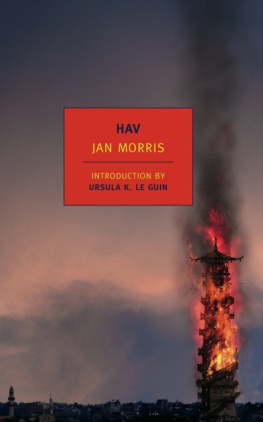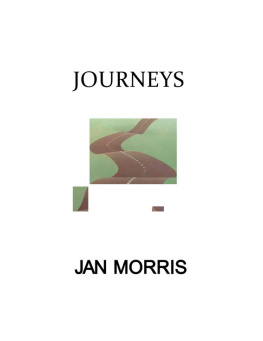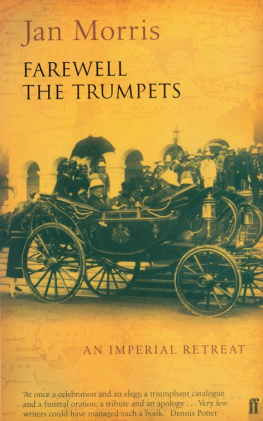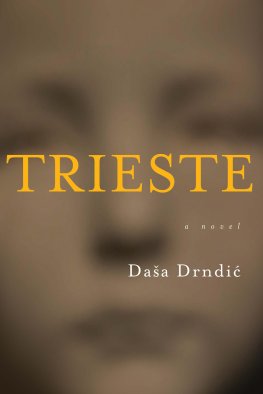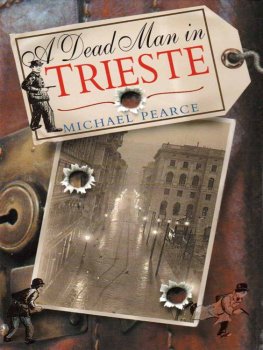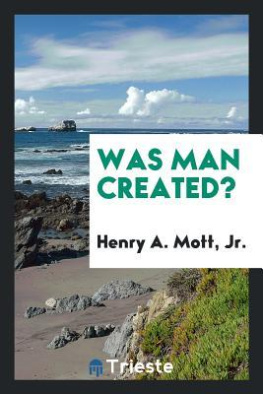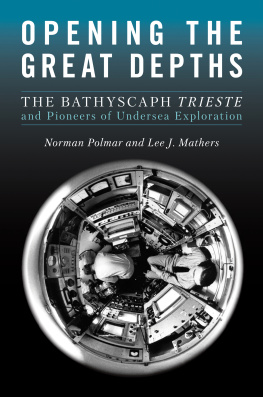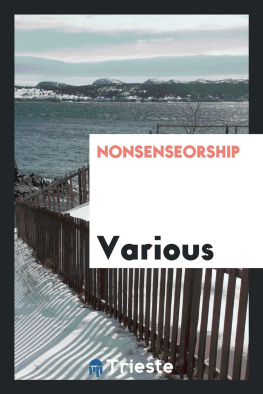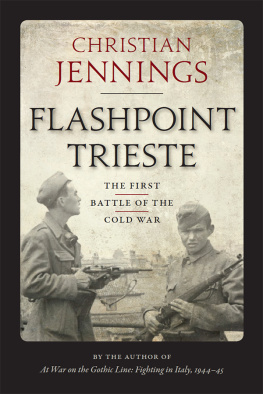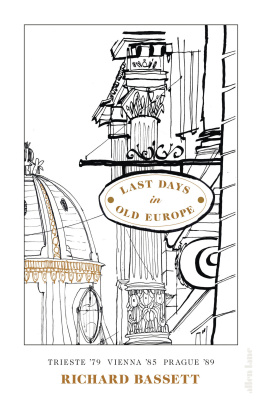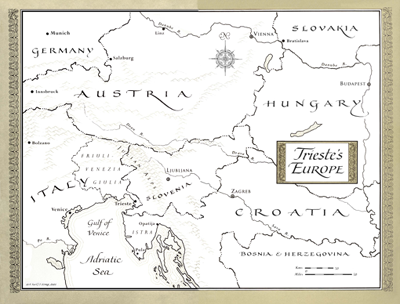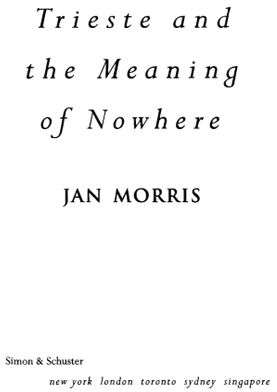
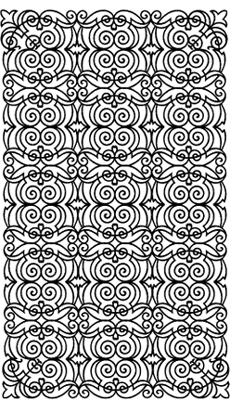

SIMON & SCHUSTER
Rockefeller Center
1230 Avenue of the Americas
New York, NY 10020
www.SimonandSchuster.com
Copyright 2001 by Jan Morris
Endpaper map copyright 2001 by Anita Karl and Jim Kemp
All rights reserved, including the right of reproduction in whole or in part in any form.
SIMON & SCHUSTER and colophon are registered trademarks of Simon & Schuster, Inc.
For information about special discounts for bulk purchases, please contact Simon & Schuster Special Sales: 1-800-456-6798 or business@simonandschuster.com
Designed by Jeanette Olender
Manufactured in the United States of America
1 3 5 7 9 10 8 6 4 2
Library of Congress Cataloging-in-Publication Data
Morris, Jan, 1926-.
Trieste and the meaning of nowhere / Jan Morris.
p. cm.
1. Trieste (Italy)Description and travel. 2. Morris, Jan, 1926JourneysItalyTrieste.
DG975.T825 m675 2001
914.5393dc21 2001031356
ISBN 0-7432-0128-0
eISBN: 978-1-439-13693-5
http://www.Simonspeakers.com
From THE COLLECTED POEMS OF WALLACE STEVENS by Wallace Stevens, copyright 1954 by Wallace Stevens. Used by permission of Alfred A. Knopf, a division of Random House, Inc.
Watching the Needleboats at San Sabba, from COLLECTED POEMS by James Joyce, copyright 1918 by B. W. Huebsch, Inc., 1927, 1936, by James Joyce, 1946 by Nora Joyce. Used by permission of Viking Penguin, a division of Penguin Putnam Inc.
For ELIZABETH and in memory of OTTO 9th Queens Royal Lancers
Jan Morris lived and wrote as James Morris until she completed a change of sexual role in 1972.
CONTENTS
Prologue An Angel Passes
That half-real, half-imagined seaport
A City Down the Hill
Surreal, hypochondriac, subliminal? Surely not
Preferring a Blur
For the drifter it is just right
Remembering Empires
Seductive illusions of permanence
Only the Band Plays On
I can hear the music still, but all the rest is phantom
Origins of a Civic Style
Becausewell, because of the Trieste effect
Sad Questions of Oneself
The officers have turned in their saddles to see what is happening
Trains on the Quays
Far away from where? Exile is no more than absence
One Night at the Risiera
Their spirit, diffused but inherent, like a gene in the chromosome
Borgello, Kofric, Slokovich and Blotz
I cant make out the colour of Trieste, but it looks sort of orangy
The Nonsense of Nationality
If race is a fraud, nationality is a cruel pretence
Love and Lust
When I think of Trieste, love and lust, I often think of him
The Wild Side
A lifelong aspirant anarchist
The Biplane and the Steamer
The wind blew and the dog barked, but by teatime I was back in Trieste
Whats It For?
He potters around the house. He tinkers with this hobby and that
After My Time
A virility that has come too late for me
The Capital of Nowhere
A diaspora of their own
Epilogue Across My Grave
As we used to say at the cinema, this is where we came in
I was the world in which I walked, and what I saw Or heard or felt came not but from myself
Wallace Stevens

Trieste and the Meaning of Nowhere
PROLOGUE An Angel Passes
An Angel Passes I cannot always see Trieste in my minds eye. Who can? It is not one of your iconic cities, instantly visible in the memory or the imagination. It offers no unforgettable landmark, no universally familiar melody, no unmistakeable cuisine, hardly a single native name that everyone knows. It is a middle-sized, essentially middle-aged Italian seaport, ethnically ambivalent, historically confused, only intermittently prosperous, tucked away at the top right-hand corner of the Adriatic Sea, and so lacking the customary characteristics of Italy that in 1999 some 70 percent of Italians, so a poll claimed to discover, did not know it was in Italy at all.
There are moments in my life, nevertheless, when a suggestion of Trieste is summoned so exactly into my consciousness that wherever I am, I feel myself transported there. The sensation is rather like those arcane moments of hush that sometimes interrupt a perfectly ordinary conversation, and are said to signify the passing of an angel. Perhaps on Biblical groundssomething to do with the Crucifixion?these are popularly supposed to happen at ten minutes before the hour, and it is odd how frequently they do.
For me they often signal Trieste. Ever since I arrived there as a young soldier at the end of the second world war, this city has curiously haunted me. Whatever has happened to Trieste, however much it changes, however often I go there, for more than half a century the feelings it stirs in me have remained the same, and in those moments of sudden stillness I am not simply re-visiting the place, I am re-examining myself too. When the clock stands at ten before the hour, and the unseen courier flutters over, I find myself all alone on the waterfront at Trieste, as it was long ago, and as it always remains for me.
The Adriatic is blue and silent, not a breath of wind stirring. Across the bay a small white castle stands, and the hills around are harsh. The sun blazes, but not radiantly. A desultory tug crosses the harbour; a train clanks somewhere; a small steamer belches smoke; a band plays in the distance and somebody whistles a snatch of Puccinior is that me? The heavily pompous buildings that line the shore, spiked and pinnacled with symbolisms, seem to be deserted, as in siesta, and on the quays edge a solitary angler sits hunched and motionless over a float that never bobs. Flags are listless. A tram waits for passengers. The same angelic interlude that visited me at home in Wales seems to have reached Trieste too.
None of my responses to these scenes are exuberant, but they are not despondent either. I am homesick, I am thinking sad thoughts about age, doubt and disillusion, but I am not unhappy. I feel there are good people around, and an unspecified yearning steals narcotically over mewhat the Welsh language, in a well-loved word, calls hiraeth. Pathos is part of it, but in a lyrical form to which I am sentimentally susceptible, and at the same time I am excited by a suggestion of sensual desire. The allure of lost consequence and faded power is seducing me, the passing of time, the passing of friends, the scrapping of great ships! In sum I feel that this opaque seaport of my vision, so full of sweet melancholy, illustrates not just my adolescent emotions of the past, but my lifelong preoccupations too. The Trieste effect, I call it. It is as though I have been taken, for a brief sententious glimpse, out of time to nowhere.



